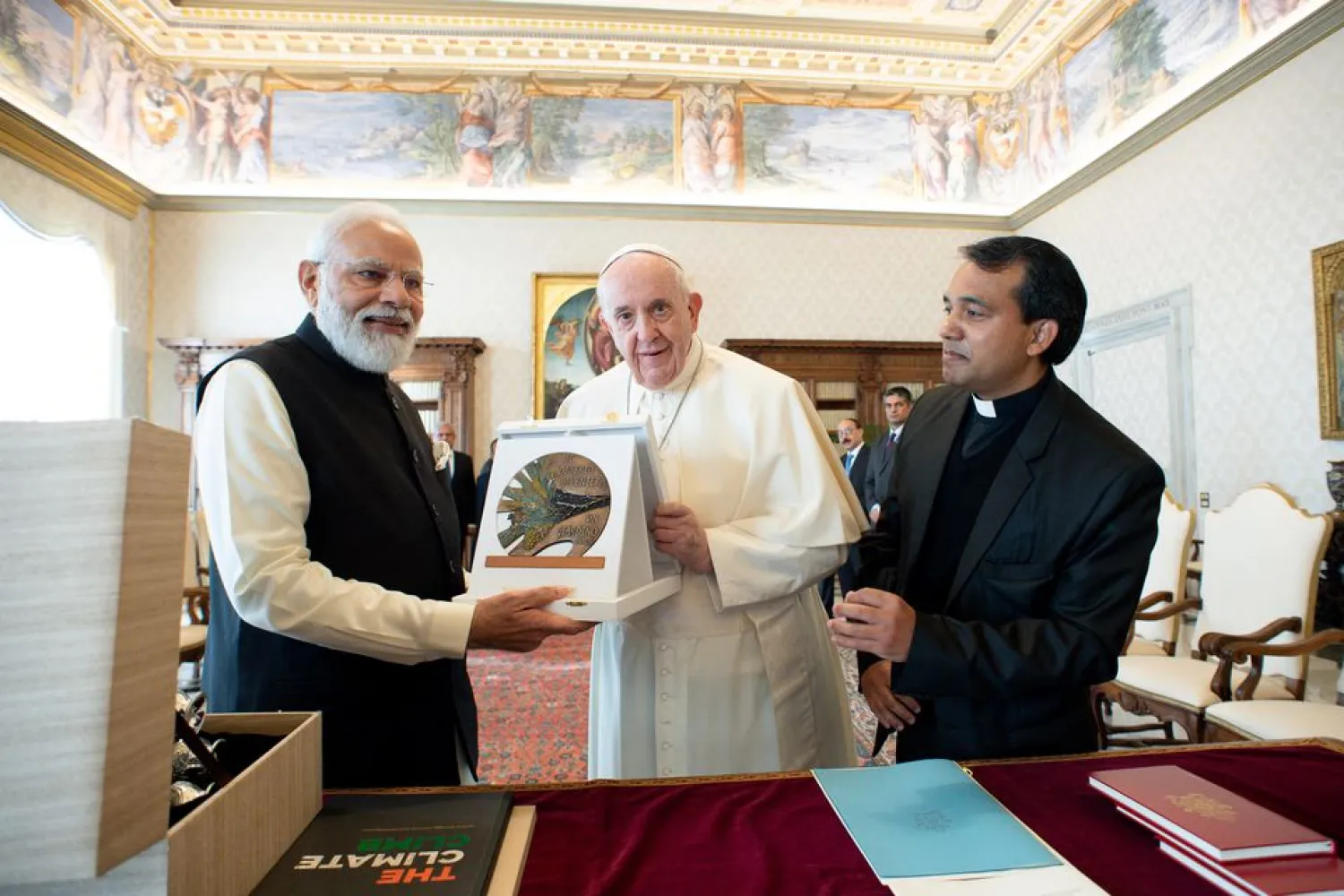Indian Prime Minister Narendra Modi on Saturday invited Pope Francis to visit the country, extending an official opening after plans for a 2017 papal visit fell apart.
“I would like to see you in India," Modi told Francis as he bade him farewell after an unusually long, 55-minute audience at the Vatican. “On my part, it would be an honor to receive you there.”
Indian Foreign Ministry spokesman Arindam Bagchi said the invitation was to come visit “at an early date” and “was accepted with pleasure.”
Modi is in Rome for the Group of 20 summit, and his visit to the Vatican marked the first time in more than 20 years that an Indian leader has met a pope.
India is home to the second largest Catholic population in Asia after the Philippines, but the roughly 18 million Catholics represent a small minority in the largely Hindu nation of 1.3 billion. Religious tensions have continued to flare after Modi’s hard-line, Hindu nationalist government was returned to power for a second term in 2019, with attacks against Muslims and Christians.
The Vatican’s official communique made no mention of the invitation or the content of Modi's meeting with the pontiff. It said only that Modi’s visit with the Vatican’s secretary of state was brief and that “the cordial relations between the Holy See and India were discussed.”
Francis had hoped to visit India and Bangladesh in 2017. After negotiations with the Indian government dragged on, Francis went instead to Bangladesh and Myanmar. Upon his return to Rome from that trip, Francis acknowledged he had wanted to go to India but that “procedures became protracted, and time was pressing."
But he said it was actually “providential" because “visiting India requires one journey: you must go to the south, to the center, to the east, to the west, to the north for the diverse cultures of India."
He said at the time that he hoped to go in 2018 “if I’m still alive!"
There was never an official explanation given for why the trip fell apart. But religious tensions have intensified since the Hindu nationalist Bharatiya Janata Party swept national elections in 2014 and elected Modi as the country’s prime minister. The country’s minorities, particularly Muslims who roughly make up 14 percent of the population, have been targeted by Hindu groups tied to Modi’s party. Christians have also been attacked and churches targeted.
Modi's meeting Saturday with Francis — which the Vatican closed to independent media, citing coronavirus restrictions — appeared warm based on Vatican photographs Modi tweeted showing the two men embracing on several occasions.
“Thank you very much for your visit," Francis said to Modi in English, holding his hands, according to Vatican video of the encounter. “I am happy.”
During the encounter, Modi gave Francis a silver candelabra and a book, “The Climate Climb: India's strategy, actions and achievements." Francis gave Modi a collection of his main teaching documents and a bronze medallion featuring a tree and the words in Italian “The desert will become a garden."









